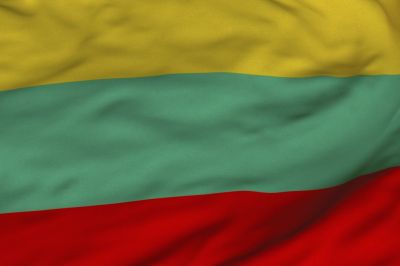Area (km2): 65 200
Population (mln): 3,24
Official language/s: Lithuanian
Currency: Lithuanian litas (LTL)
Government: Parliamentary republic
Capital: Vilnius
Density (km2): 51,4
Internet TLD: .lt
Car code: LT
Calling code: +370
GDP total 2011 (billion USD): 42,7 mld
GDP per capita 2011 (USD): 13 262
Unemployment rate Sep 2011 (%): 17.0
Unemployment rate under 25 years Sep 2011 (%): 31.8
Males enemployment rate Sep 2011 (%): 17.7
Females unemployment rate Sep 2011 (%): 13.7
Unemployment rate Sep 2012 (%): 14.1
Unemployment rate under 25 years Sep 2012 (%): 31.9
Males unemployment rate Sep 2012 (%): 14.5
Females unemployment rate Sep 2012 (%): 13.8
Country codes in education system: LT
Integrated studies can be organised in those cases only when this is
established in legal acts. Integrated study programmes must meet general
and special requirements laid down in the descriptions of the study
field (a group of fields or area), which are approved by the Minister of
Education and Science, or must satisfy only general requirements if
there are no special requirements approved.
The integrated study programme can be devoted to the following:
- studies of the major field upon completion of which a
qualification degree in that field (branch) is awarded, and to subjects
established by a higher education institution and chosen by a student
which are intended for a deeper specialisation in that field (branch),
or to practical training;
- studies of the major field upon completion of which a
qualification degree in the field (branch) is awarded and to the module
(modules), subject (subjects) or practical training of another field
(branch) established by higher education institutions and chosen by a
student;
- studies of the major field upon completion of which a
qualification degree in the field (branch) is awarded and to general
subjects of university studies (subjects related to the world outlook
and general erudition, which are not directly related to the content of
studies of the major field) established by higher education institutions
and chosen by a student that are of a larger scope than the necessary
scope established in this description;
- two-field studies – the major field and the minor field –
established by a higher education institution and chosen by a student,
upon completion of which a double qualification degree in the major
field (branch) and the minor field (branch) is awarded.
